From the May 2018 issue of Journal of Chinese Cinemas. — J.R.
XD: Jonathan, you and I are both cinephiles. Much of our conversation over the years has been about our favorite films and directors, and we nudge each other to watch or re-watch new releases and rediscovered classics. Now that we’re co-editing this special issue on comedy, I wonder, what are some of the most amusing moments for you in the Chinese-language films that you’ve seen? I ask about these cinephiliac moments because when a comic scene works, it tends to be highly memorable. And often what we find amusing can tell us a lot about the film as a whole: how it plays with comic conventions, how it addresses its audience, how it ages over time.
JR: I was especially amused by the point-of-view shots from inside an ATM in Peter Chan’s 1996 Comrades: Almost a Love Story (a particular favorite of mine), because of the whole idea of what we look like from the vantage point of our money – or, more specifically, what Maggie Cheung and Leon Lai, both mainlanders who meet one another in Hong Kong and try to “make it” there, look like to the ups and downs of their cash balances that epitomize much of their struggle.
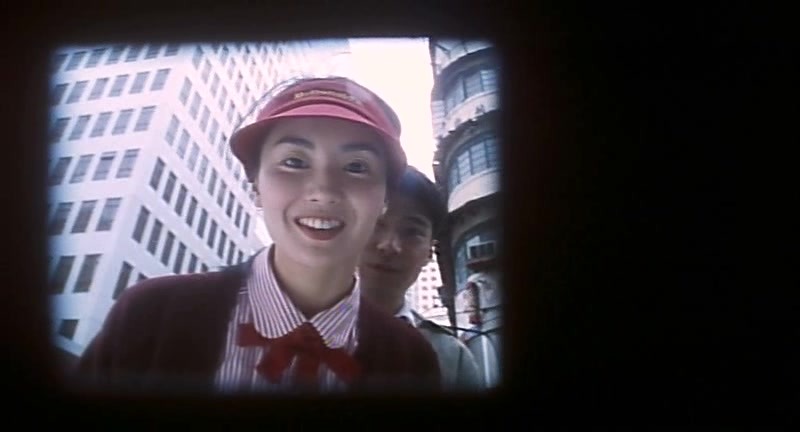
XD: Interesting that you picked this sweet little running gag in an unassuming romantic comedy. I say “unassuming” because not only rom-com is always knowingly light, but this film makes unpretentiousness its virtue. Comrade, this is almost a love story, but wait a minute, let me check my ATM… ATM is the tragicomedy here. No wonder the film has aged so well. It’s a classic now – after all, it’s an homage to Teresa Teng’s soon-to-be-classic love songs.
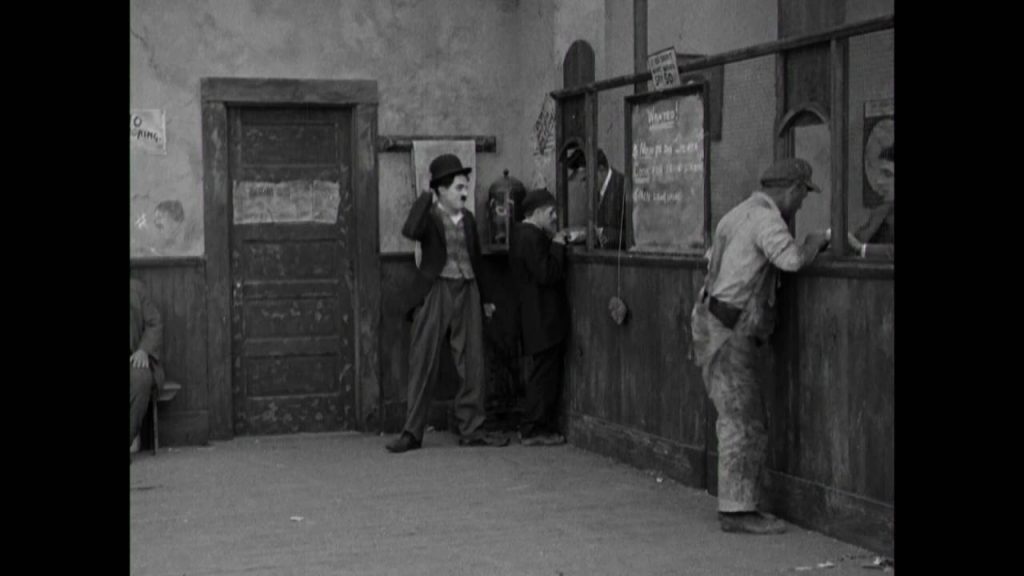
I also recall a favorite moment in there, when Leon Lai restlessly switches between several long lines at the local McDonald’s and promptly deposits himself at the counter when Maggie Cheung starts a new line. A well-choreographed “meet-cute.” But it also reminds me of Charlie Chaplin’s Tramp at the employment office in A Dog’s Life (1918) – whereas the Tramp always loses to his more alert (or muscular) fellow tramps, Leon Lai has better luck as a mainlander in Hong Kong, better trained to be opportunistic with long lines. Of course, Peter Chan didn’t have to see Chaplin to come up with this scene, even though he might have while studying at the UCLA film school. He has an eye for found comic situations, and the gag works because it taps into our everyday experience. Like your ATM example, this one keeps me amused when I wait in long lines… With all these gags found on the street, so to speak, Chan keeps the first part of Comrades lighthearted and funny, a “migrant comedy” in the tradition of the “rube comedies” in early cinema.
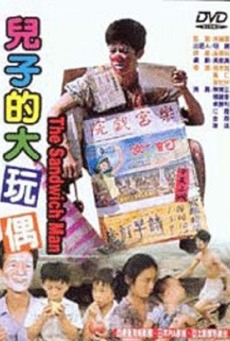
JR: Speaking of rube comedies, another moment comes to mind. Have you seen The Taste of Apple? It’s the third and last sketch of the Taiwanese anthology feature The Sandwich Man (1983), adapted by Nien-Jen Wu from a story by Chunming Huang and directed by Zhuang Xiang Zeng. It’s a hilarious account of the diverse misadventures and misunderstandings that ensue when the car of an American diplomat accidentally hits a poor street peddler and his entire family winds up at the American hospital where he’s been taken. The moment I find so funny is when the wife and daughter accidentally enter a men’s bathroom, not knowing English, and a man enters after them while the camera remains focused on the outside door, just like a shot in a Lubitsch film. This sketch finds the poor family quite funny in its responses to the Americans, without ever being condescending about their own innocence. The whole sketch, in fact, might be described as affectionate satire, which may sound like an oxymoron, but I think this is a legitimate satirical form.
XD: Very Lubitsch-like, indeed. In Trouble in Paradise (1932), Lubitsch had the camera perched outside the Lady’s Room; it patiently stays there and catches an absent-minded gentleman following his lady friend, entering by mistake, and getting thrown out in the next instant. Also, Lubitsch’s satire is always more affectionate than bitter. By the way,what happened to the bathroom situation in The Taste of Apple – what’s the punch line? I saw the film long time ago and don’t remember the details.
JR: First there is a series of sound gags via off-screen dialogue while the camera remains focused on the door. We hear the mother’s exclamation, “My goodness! These bathrooms are so clean, and so white!” Then the daughter: “Mom, do I squat or sit on these?” And so forth. This is immediately followed by a soldier passing through the door and the mother screaming. Then we see the soldier walking out, bewildered and scratching his head. Off-screen, the mother says, “How rude! That American walked right in here without even knocking,” which concludes the sequence.
XD: This is almost a double-“rube” situation – the non-English speaking mother considers the American “rude” for not knocking. It’s true that these rube characters lead to “affectionate satires,” to use your term. As a comic type, the “rubes” are the “naïfs” in the cosmopolitan city, and we are affectionate toward them because so much of this role-playing is situation-based. There are many of them in Chinese comedies, perhaps because of China’s long urbanization process and uneven geographical developments. I remember you really like The Story of Qiuju (1992). Isn’t that another rendition of a rube comedy?
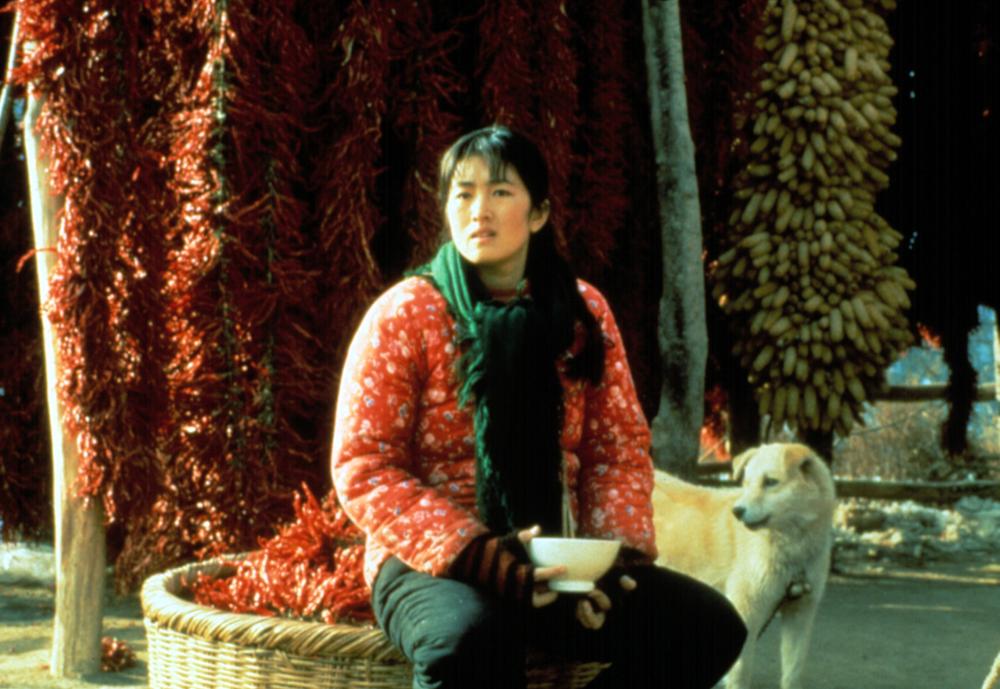
JR: Yes, certainly. And it may even qualify as Zhang’s best film. I saw it a quarter of a century ago, and haven’t reseen it since then, but looking up my capsule review in the Chicago Reader, I would say that the film more or less celebrates a form of rural intelligence that plays both with and against the rube comedy: “Zhang Yimou shifts gears from the upper-class formalism and cloistered period settings of his Red Sorghum, Ju Dou, and Raise the Red Lantern with this 1992 comedy about a pregnant farm wife (Gong Li) taking on the government bureaucracy after her husband is injured in an altercation with the village chief. Shot mainly with hidden cameras and nonprofessional actors (including government bureaucrats), this may contain more casual information about everyday life in China than all the other Chinese movies distributed in this country combined.” Zhang seems especially sympathetic to the outright stubbornness and persistence of his rubes, their survival instincts and their refusal to back down, which may be why this film shows him at his best.
XD: Zhang does seem to be fascinated with the headstrong type and their “rural intelligence” – he created a similar character in the village teacher in Not One Less (1999), which is a combination of cinema vérité, classroom farce, and sentimental rube comedy. But Zhang’s “naïve” character is not always a country rube; he can also be a more abstract figure as simply the embodiment of survival. I’m sure you’ve seen To Live (1994). The novel it’s based on is not at all comic and the setting is countryside, but Zhang moved the story to a small town and cast an established comedian, Ge You, for his protagonist.
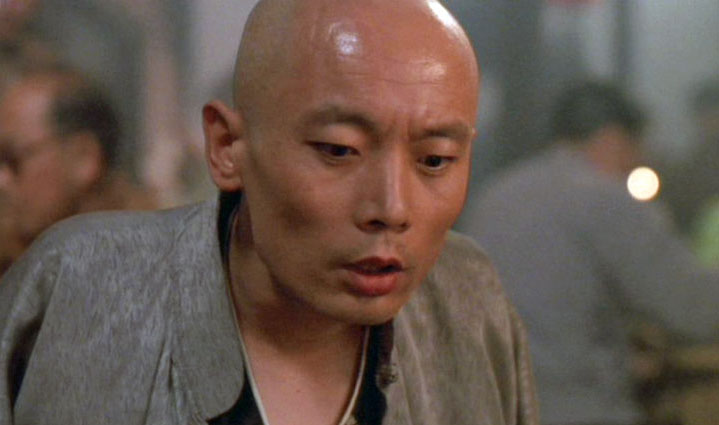
JR: Yes, To Live isn’t really a comedy in the same sense, even though it stars a comic actor playing a sort of simpleton, because so much of the film is tragic. Yet at the same time, it criticizes the Cultural Revolution as an absurdist, tragicomic farce in a way that for me evokes some of the satire found in Robert Zemeckis’s Hollywood production of the same year, Forrest Gump, which ridicules the 60s counterculture and the antiwar movement of that period. A key moment here occurs when we discover that if the simpleton hero hadn’t gambled away his ancestral home, he would have been executed during the Cultural Revolution, which is precisely what does happen to the gambler who won the building. This is a provocative moment, but it didn’t make me laugh or even smile because the social implications are too grim. And by the same token, I didn’t laugh at the moment in Forrest Gump when a supposedly pacifist antiwar protester slaps his girlfriend. Even though it’s meant to be ironic, I found the moment glib and somewhat offensive. More generally, these moments are too programmatic in their ideological polemics to work simply as comedy.
XD: True, these are no longer”affectionate satires,” but get bitter as political satires sometime do. This also means we have gone quite far from where we started, which was to talk about those moments that we found truly amusing and memorable. I noticed that the first three films we just talked about belong more or less to the “New Waves” from Hong Kong, Taiwan, and mainland China. We generally don’t talk about “New Wave” films in terms of comedy, but then we might be missing out an important dimension of these works. It seems to me that many “New Wave” directors are quite playful with the medium. This playfulness can come out as comic touches, and comedy as a genre also trains the filmmakers to be more playful with the medium. Wouldn’t you say that some of the best works from the French New Wave are quite humorous?
JR: The most famous example of this is the moment in Shoot the Piano Player when a gangster declares that if he’s lying, may his mother drop dead, and we cut to an old silent clip of a mother doing precisely that. Then there’s the moment in Band of Outsiders when a character calls for a minute of silence, and the soundtrack is promptly turned off. But for me, the epitome of the French New Wave can be seen in its frequent cross-referencing of commercial (i.e., Hollywood) film genres, and many of their innovations stemmed from low-budget ways of imitating, approximating, parodying or at least evoking the pleasures that derived from Hollywood studios, so that Breathless, The Cousins(another country-rube-in-the-city story, but one quite unlike the Chinese comedy examples), Shoot the Piano Player, Les Bonnes Femmes, and Band of Outsiders all referenced cheap crime thrillers, A Woman is a Woman tried to evoke musicals without any songs or dance, and Alphaville and Fahrenheit 451 did the same thing for futuristic science fiction without the benefit of fancy special effects. This of course largely came from the fact that these filmmakers were cinephiles who started out as film critics. In all these cases, you might even say that these filmmakers’ wit in referencing Hollywood genres often functioned as a poor man’s form of sophistication, which is where comedy and irreverent forms of humor often came into play.
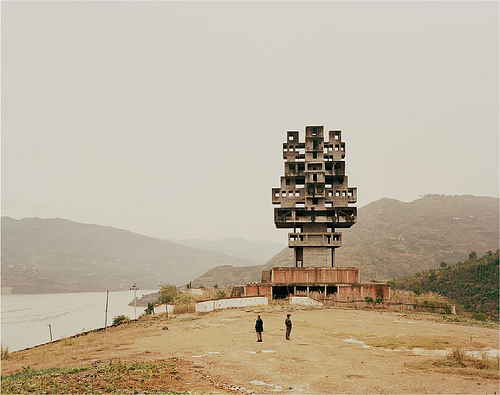
A similar self-consciousness about film with wit and irony in the French New Wave can be found in the Chinese, Hong Kong, and Taiwanese New Waves. Think of what Jia Zhangke does with science fiction and circus imagery in Still Life to broaden and enrich his spectacular documentary setting. Even funnier is the way he shows his own early features being distributed in bootleg copies in Uncommon Pleasures. Or think of what Tsai (Ming-liang) does in both celebrating and parodying musicals in The Hole with various forms of hilarious campy extravagance in the numbers, or in what (Edward) Yang does in both celebrating and ironically counterpointing notions of Elvis Presley and other American touchstones in A Brighter Summer Day. And consider Stanley Kwan’s use of ghosts in Rouge, which manages to be both historical and contemporary at the same time thanks to all the ironies involved.
XD: Right, genre bending itself can be witty, and in this sense comedy broadly defined can be a “bending genre” – bending is something comedy does really well, and it can bend nearly every other genre. I also like your idea about “poor man’s form of sophistication.” Sophistication doesn’t have to be a rich man’s game – Chaplin and Lubitsch were among the first to bring sophistication to cinematic storytelling, and they did so through “sophisticated comedies.”
But back to the “New Waves,” other than the genre-bending humor, I also see a direct connection between the comedy genre and some New Wave directors, even the unlikely ones, such as Hou Hsiao-hsien. Three of Hou’s early romantic comedies have been getting attention recently, featured in film festivals and coming out in DVD and Blu-ray box-sets – Cute Girl (1980), Cheerful Wind (1981), and The Green Green Grass of Home (1982). Critics were excited to identify traces of late Hou in early Hou or “pre-Hou,” but they often dismiss the genre practice, as if Hou must emerge as a New Wave Great despite comedy. If we look carefully, however, Hou’s knack for mise-en-scène and frame control actually went into crafting sight gags, and these comedies might have been a training ground for him. In The Green Green Grass of Home, a little boy late for school drops his book bag in order to run faster, and the camera lingers on the bag, as if it’s holding one corner of its frame; it’s a perceptual gag worthy of Tati. In Cute Girl, Hou makes a cheat continuity cut from the second-to-last scene to the last, so that Feng Feifei, who appears to be still quarrelling with Kenny Bee after their blind date, is revealed to be very pregnant in the next, longer shot, when the couple apparently are already married (and her pouting one routine of their marital life). This is an almost Keatonian sleight of hand. Of course not all comedies have this kind of sight gag, but the best ones do. Plus Hou is just as interested in everyday slapstick (Kenny Bee’s antics) and body humor (extended scatological jokes in both Cute Girl and Cheerful Wind), not unlike Ozu. Think about those naughty kids in Hou’s and Ozu’s films, especially the boys.
JR: This reminds me of a charming anecdote – have I told you that Hou’s favorite Ozu film is the same as mine? It’s one of Ozu’s last silent comedies featuring naughty kids, I Was Born, But… (1932). I know this because we participated in the same Ozu panel in Tokyo in 1998, and the moment I cherish most from that event is when we met the younger son in that film, Tomio “Tokkankozo” Aoki—one of Ozu’s greatest comic performers, whom he discovered as a boy—in the lobby afterwards. At first I didn’t recognize who that old man was, and then Hou mimed the younger son’s dismissive hand gesture as a way of identifying him to me!
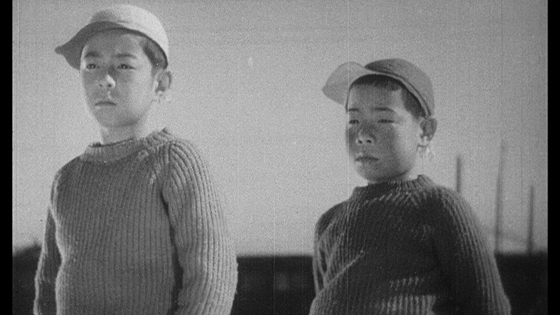
Incidentally, one of the best gags in this Ozu film is a perfect illustration of a self-referential formal gag, like those in the French New Wave: the camera tracks past a line of the coworkers at the father’s office, each of whom yawns as if on cue, until one of them doesn’t, and then the camera backtracks to this individual and patiently waits for him until he does. It reminds us that the camera can dictate a narrative the same way that people working together can dictate conformity to one another. It reminds me of that funny philosophical dialogue between Leslie Cheung and Maggie Cheung about a wall clock in a soccer stadium in Days of Being Wild (1990), which functions like a signal to the audience that for a brief spell, which is precisely pinpointed, we’re sharing a block of time with the two romantic leads. In both cases, you might say that a comic effect grows out of our recognition of our particular role as spectators.
XD: What an anecdote! Imagine Hou miming one of the boys in I Was Born, But… to communicate that idea to you, and for you to get it just like that. It draws a full circle from the “boy” as a type for everyday physical comedy to pantomimic performance as a lingua franca of international cinema.
Apparently another lingua franca is cinematically constructed humor, or what you called the “formal gag” here. Ozu and Wong Kar-wai are very different directors otherwise, and these two films are almost sixty years apart, but you remembered their “moments” of play, quite literally, with the spectators. Precisely because it’s formal play, a gag about our experiences with cinematic time and real time, no language is required, and we all get it.
Speaking of lingua franca, one of our goals for this special issue is to explore the translatability of cinematic humor and the ways Chinese filmmakers used it to engage with social and cultural issues. Jonathan, you have been an advocate for international films in the US for decades now, and helped to cultivate generations of cinephiles of world cinema. You are also an optimist in the digital era. Is it because you believe in an expanded cinephilia with increased access to older films and films around the world?
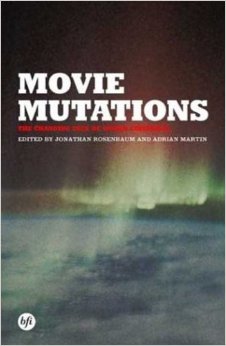
JR: Yes, that was part of the idea behind two recent books of mine. Adrian Martin and I co-edited Movie Mutations: The Changing Face of World Cinephilia in 2003, and my own collection of essays, which came out in 2010, Goodbye Cinema, Hello Cinephilia, announces its position in its very title. And another collection of mine, Essential Cinema: On the Necessity of Film Canons (2004), seeks to capitalize on the wider availability of many films made possible by digital formats.
XD: “Goodbye Cinema, Hello Cinephilia” – you have a catchy title there. Did I tell you I really like Movie Mutations? I assigned Martin’s piece “Musical Mutations: Before, Beyond, and Against Hollywood” to my class on Chinese-language musical films. In fact we could do something similar for comedy as a traveling genre with historical and international mutations.
The tricky part, also what makes it interesting, is that unlike the musical, comedy is always more than a genre (we talked about comedy doing the work of genre bending), not as much Hollywood-centered, and even Hollywood comedies are less studied than many other genres (melodrama, Western, film noir, etc.). We could call our conversation “Comedy Mutations: Before, Beyond, and Even in Hollywood.” But jokes aside, what do you have to say about international film comedies? When you collate the “essential films” from the past century, do you see any interesting tendencies or patterns concerning comedy?
JR: It could be said that there is an international history of film comedy to begin with. We could postulate one possible beginning with early comic shorts in the 1900s in England, France and the US, then the silent slapstick comedies featuring Max Linder, Chaplin, Keaton and others in the 1910s and early 1920s, which led to such developments as Lubitsch and Clair, and in the 1930s, Capra, McCarey, Ozu, and, in Chinese cinema, directors like Yuan Muzhi. The Yuan film you showed me, Metropolitan Scenes (Dushi fenguang, 1935), is fascinating, especially for what I take to be its eccentric modernism — a similar kind of self-consciousness about sound and image to what one finds in Lewis Milestone’s Hallelujah I’m a Bum (1933), made only two years earlier, as well as in Rouben Mamoulian’s Love Me Tonight (1932)
It seems significant that many of the key comic figures in this development tend to focus on urban settings and urban characters (Chaplin, Laurel and Hardy, the Marx brothers, and Ozu’s families, for example) – although we also get small-town heroes played by Buster Keaton and W.C. Fields, among others. It appears that the transitions between country and city habits and vice versa tend to be much more prevalent in Chinese cinema— it certainly plays a role in The Story of Qiu Ju, as we talked about, and practically the whole career of Jia Zhangke can be catalogued in that fashion.
XD: I’m glad you brought up Metropolitan Scenes. It turns out to be a perfect case in point for some of our observations here. It is about the transition between country and city – the “Metropolitan Scenes” are from the eyes of four peasants about to go to the city. That perspective, the perspective of city outsiders, does seem to persist in Chinese films, from Yuan’s generation to Jia’s generation.
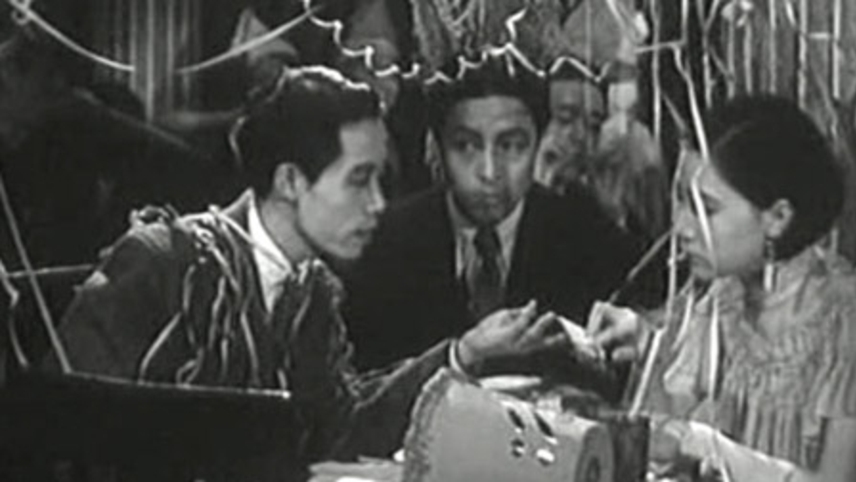
Like you, when I first saw Metropolitan Scenes many years ago, I was struck by how eclectic and ambitious it was. It was both similar to and different from other Shanghai films around the same time. Similar in their shared cosmopolitan aspirations, but different in degree because Yuan really pushed the envelop with Metropolitan Scenes. When I began to do research on this film, I realized there is also a difference in kind – Yuan’s eclecticism here is more than a familiar cosmopolitanism, but might be better described as an internationalism. He cited many filmmakers from the international Left and the Depression-era Hollywood, who were all experimenting with sound comedy in the early 1930s (Lewis Milestone’s Hallelujah I’m a Bum is one example). Through Metropolitan Scenes, I discovered Shanghai filmmakers’ very broad horizon – they were interested in Rene Clair, in G. W. Pabst, in Grigori Aleksandrov, not to mention the renewed interests in Chaplin and Walt Disney through sound. I call this a moment of the “Comedy International” (to pun on “Comintern”) in my book, The Comic Avant-garde: A Forgotten History of Chinese Cinema and Interwar Modernism (Columbia University Press, forthcoming 2018). So I would carve out the early sound era as an important period for international film comedies, marked by a burst of creativity and experiments worldwide. Looking only at Hollywood, we tend to think comedy declined right after the golden age of silent comedians, and that might have caused the amnesia about these international classics.
Talking about classics, I like your idea of “essential films,” even just to constantly broaden our horizons of international cinema from different time periods. How about we conclude this conversation with a list of lesser-known but “essential” film comedy classics? What Chinese film comedies would you recommend to world cinephiles? And what not-so-obvious international comedy classics would you recommend to cinephiles in China?
JR: Why don’t we each come up with five Chinese film comedies for one list, and five international film comedies for another list?
XD: Sounds good. Here are my lists – I know we might have overlaps, so am saving Comrade, Almost a Love Story for yours.
A. Essential Chinese Comedies
1. Metropolitan Scenes (Dushi fenguang, dir. Yuan Muzhi, 1935)
2. Li Shuangshuang (Li Shuangshuang, dir. Lu Ren, 1962)
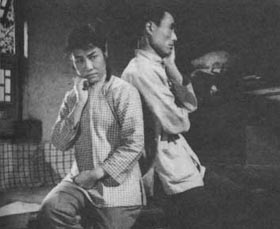
3. The House of 72 Tenants (Qishier jia fangke, dir. Chor Yuen, 1973)
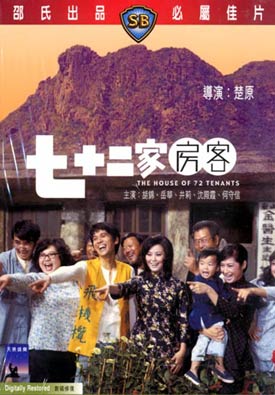
4. Peking Opera Blues (Daoma dan, dir. Tsui Hark, 1986)
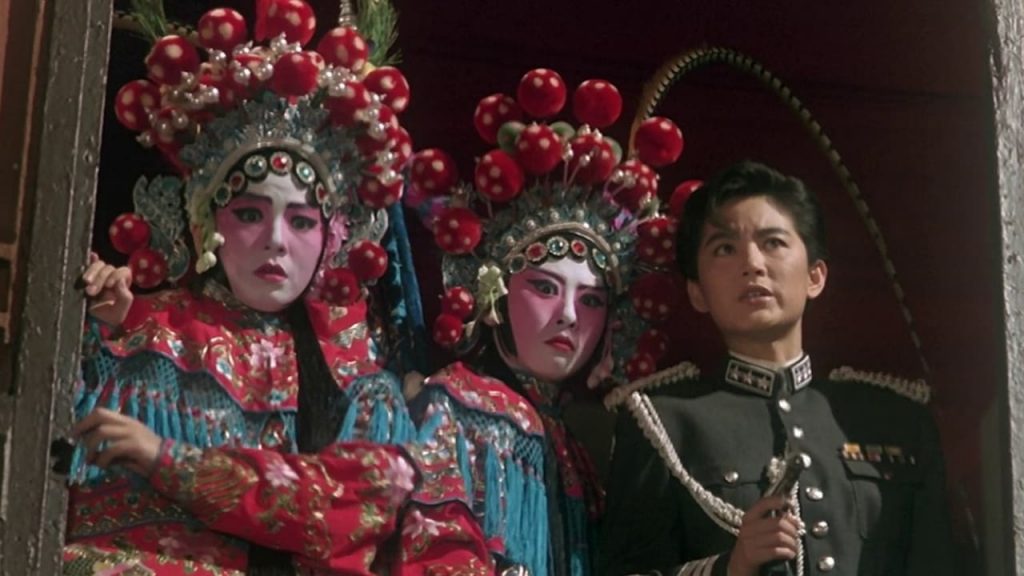
5. A Confucian Confusion (Duli shidai, dir. Edward Yang, 1994)
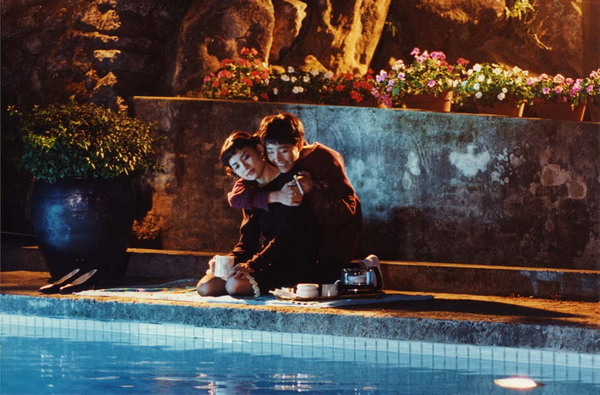
It’s difficult to pick five out of many good Chinese comedies, more difficult than I thought it would be! In the end I went with iconography: these five each reflects on an iconographic aspect of Chinese culture and with such flair that they also each represents a distinct cinematic style. Metropolitan Scenes captures semi-colonial Shanghai during the Great Depression with its eclectic internationalism. I chose Li Shuangshuang partly because of our discussion of city and country comedies – this film is named after its titular character “Li Shuangshuang,” a strong-willed peasant woman and an early incarnation of Qiuju. But if cinéma-vérité gives The Story of Qiuju an existential streak, Socialist Realism gives Li Shuangshuang a utopian dimension. The House of 72 Tenants features an iconographic setting of a ghetto community, evident from the title. We wouldn’t have a transnational blockbuster like Kung Fu Hustle (dir. Stephen Chow, 2004) without this local favorite from the 1970s, which in turn has its root in Shanghai cinema. Peking Opera Blues, an early Tsui Hark film, is still one of the best to bring out what Peking Opera has to offer. The ways Tsui blends slapstick with acrobatics are brilliant, not to mention all the hilarious sound gags.
A Confucian Confusion is Edward Yang’s first comedy and it anticipates Yi Yi in many ways. I like this earlier work because of the more colorful and unapologetic comic types. Everyone’s confusion is still very Confucian in this skyscraper city comedy about the intricate web of human relations. And it opens with a buffoonish artist ruminating on comedy, as if Yang in self-mockery. Talking about “Confucian confusions” (I love the word play), I was also going to put Eat Drink Man Woman (Ang Lee, 1994) on the list, but I suppose it’s already very well-known and widely watched. To me, Ang Lee, Edward Yang, and Peter Chan all excel in what could be called “cosmopolitan comedies,” both in form and in content, perhaps because of their film school trainings and cross-cultural experiences. In this regard, Chinese-language film comedies help to highlight another comic pattern, namely, sustained cultural encounters in the process of globalization (between the East and the West and other manifestations) as a major source of humor.
- Essential International Comedies
- Under the Roofs of Paris (Rene Clair, 1930)
- The Threepenny Opera (G. W. Pabst, 1931)
- Love Me Tonight (Rouben Mamoulian, 1932)
- The Gold Diggers of 1933 (Mervyn LeRoy, 1933)
- Jolly Fellows (Grigori Aleksandrov, 1935)
For essential international film comedies, I limited myself to the early sound era, for reasons mentioned above. I have discussed all of these films in more detail in my book The Comic Avant-garde, so nothing more needs to be said here. Indeed these films are all classics in their own national film histories, but I group them together to highlight the Zeitgeist of Depression-era international film comedies, their interconnections and their Shanghai connections.
JR: I’ll happily put Comrades, Almost a Love Story on my list. I’ll also include The Story of Qiuju.
A. Essential Chinese Comedies
Link: https://www.jonathanrosenbaum.net/2018/02/red-tape/
- Comrades, Almost a Love Story (Tian mimi, dir. Peter Chan, 1996)
Link: https://www.jonathanrosenbaum.net/2017/11/comrades-almost-a-love-story/
- Mr. Zhao (Zhao xiansheng, dir. Yue Lü, 1998)
Link: https://www.jonathanrosenbaum.net/1999/09/a-breakthrough-and-a-throwback/

- A One and a Two (Yi Yi, dir. Edward Yang, 2000)
Link: https://www.jonathanrosenbaum.net/2001/03/alone-in-a-crowd/
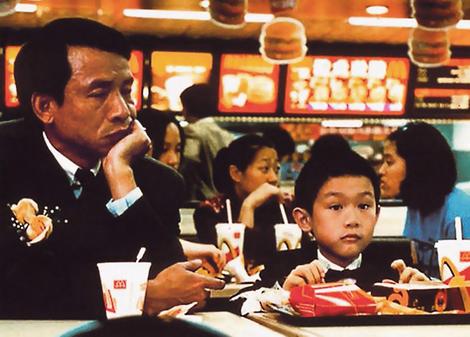
- Goodbye, Dragon Inn (Busan, dir. Tsai Ming-liang, 2003)
Link: https://www.jonathanrosenbaum.net/2005/01/goodbye-dragon-inn-2/
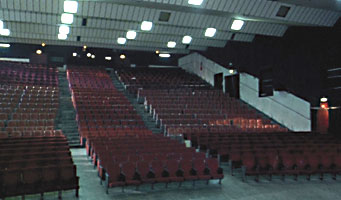
Mr. Zhao — a first feature by one of Zhang Yimou’s cinematographers – is a comedy about adultery set in Shanghai, with much of the dialogue improvised by its talented cast, employing both a shooting style and an overall style of acting that periodically suggest John Cassavete. It has lamentably been overlooked and marginalized, even after winning the Golden Leopard at the Locarno Film Festival in 1998. As I noted somewhat sourly in my capsule review for the Chicago Reader, “Viewers requiring the validation of the New York Times or the New Yorker before making their cultural decisions will therefore have to take a pass on this, and it will be their tough luck.” By contrast, Yi Yi, an intricate family comedy with philosophical undertones, got far more attention than Yang’s previous films, at least in the West. It was the first of his films to become commercially available in digital form—unlike A Confucian Confusion, which I’m happy to report was the first of his films to play at the New York Film Festival, something I helped to promote because I was on their selection committee at the time.
I should add that as someone who virtually grew up inside movie theaters in northwestern Alabama (where my grandfather and father operated a small chain of cinemas — the subject of my first and most ambitious book, Moving Places: A Life at the Movies) — Goodbye, Dragon Inn carries an especially poignant resonance for me.
XD: Why is it a comedy to you, exactly? And how interesting – we have a movie theater connection here. I also “virtually” grew up inside my “Cinema Paradiso,” a movie theater back in the capital city of Inner Mongolia where my mother worked as a poster painter in the 1970s and 1980s. We moved before the movie theater was closed down, but those were some of the best years when cinema was the center of community life. Well, goodbye cinema, hello cinephilia!
JR: Yes, hello cinephilia! About Goodbye, Dragon Inn, I’m thinking about the melancholy and irony of the empty theater seats and a few ghostly spectators that the film does so much with. As in Mr. Hulot’s Holiday (Jacques Tati, 1953), one can speak about a comedy of absence involving both boredom and empty space. And there’s definitely an element of deadpan slapstick in Tsai’s films. He employs a slow-motion street theater in Journey to the West (2014), for instance: Lee Kang-sheng in a monk’s red robe inching forward at an almost imperceptibly slow pace, followed at some distance by an equally slow-paced (but more conventionally dressed) Denis Lavant, and surrounded by the attentiveness or lack of attention paid by innocent bystanders to this very weird spectacle.
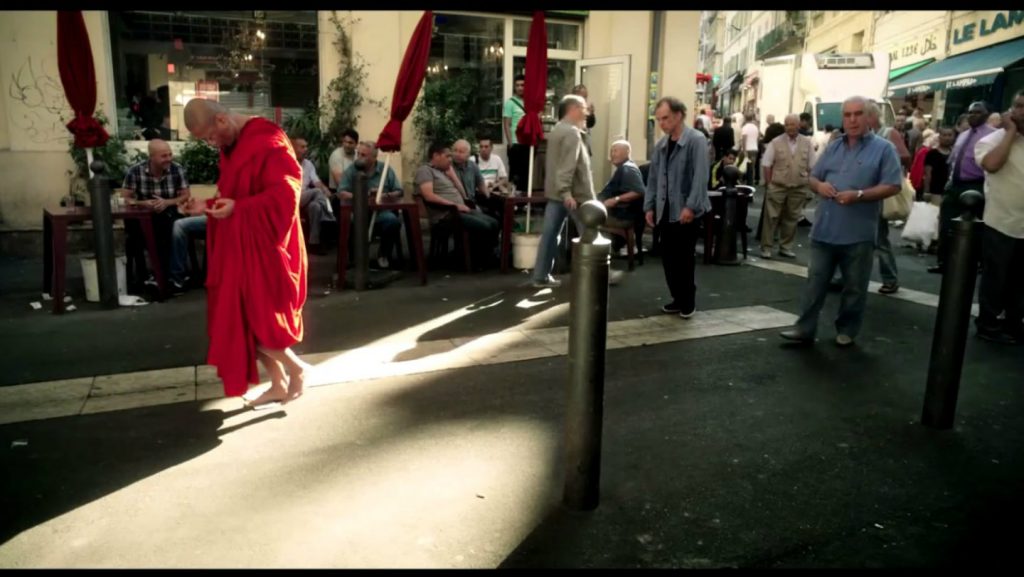
- B.. Essential International Comedies:
- I Was Born, But… (Yasujiro Ozu, 1932) link: https://www.jonathanrosenbaum.net/2017/05/structures-and-strictures-in-suburbia-tk/
- Christmas in July (Preston Sturges, 1940) link: https://www.jonathanrosenbaum.net/1990/11/christmas-in-july/
- PlayTime (Jacques Tati, 1967) link: https://www.jonathanrosenbaum.net/2006/07/the-dance-of-playtime/
- The Wind Will Carry Us (Abbas Kiarostami, 1999) link: https://www.jonathanrosenbaum.net/2018/01/the-universe-in-a-cellar/
- The Saddest Music in the World (Guy Maddin, 2003) link:
- https://www.jonathanrosenbaum.net/2004/05/crying-in-their-beer/
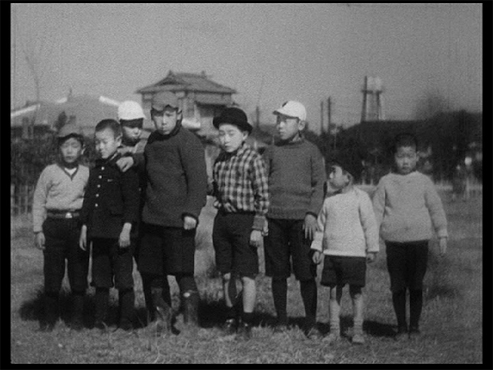
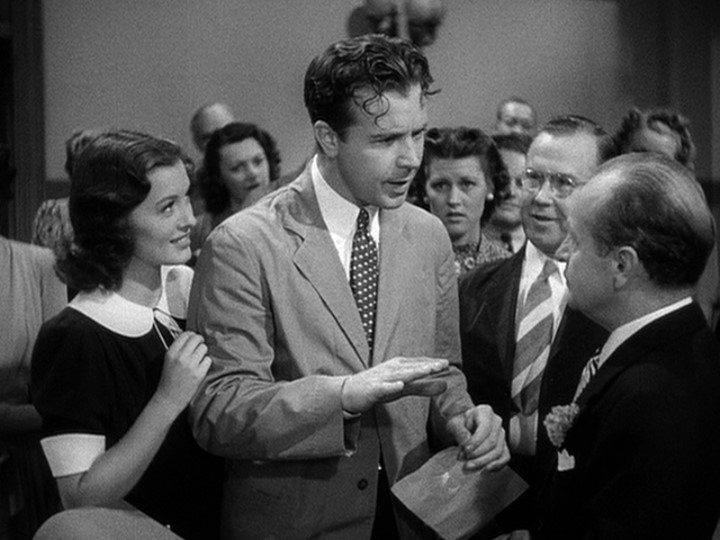
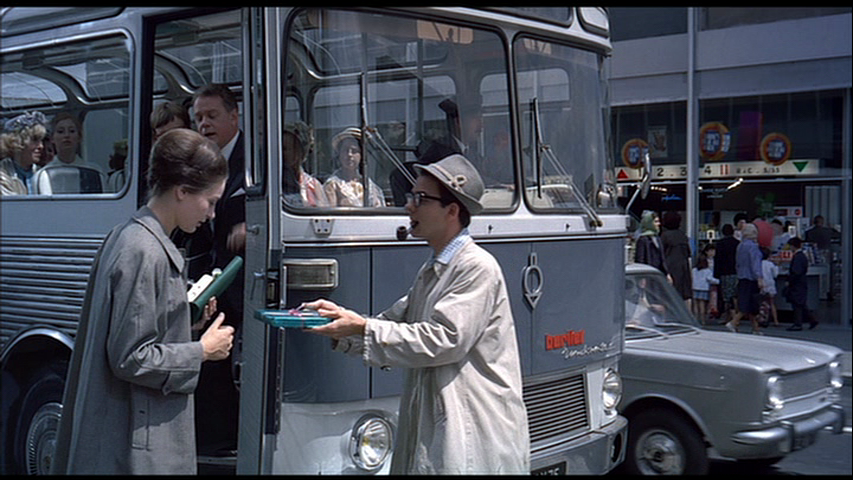
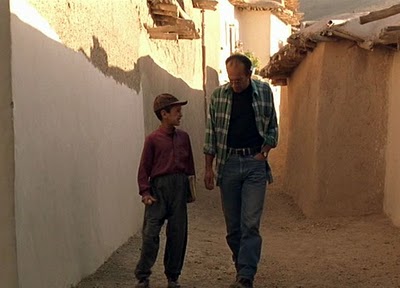
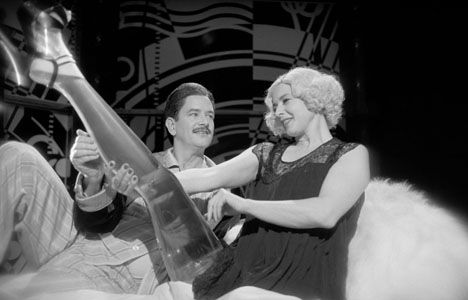
I’ve deliberately restricted myself to five different countries and five separate decades, just to begin to suggest a very wide range of possibilities. I was also tempted to include Alexander Dovzhenko’s Ivan, made the same year as I Was Born, But… It isn’t usually considered a comedy, even though Dovzhenko is as much of a witty hillbilly avant-gardist as Jia Zhangke (or William Faulkner, for that matter), but I find the film’s celebration of an old peasant who refuses to work on the building of a dam and goes fishing instead totally hilarious, and the riotous slapstick regarding another old geezer who’s confounded by loudspeakers is worthy of Tati. The Kiarostami and Maddin films aren’t routinely considered as comedies either, and neither are such films by Bela Tarr as Satantango (1994) and The Turin Horse(2011), although Tarr himself regards them as such and I believe he’s right.
Personally, I’ve never thought of The Threepenny Opera as a comedy either. My point is that comedy is actually wider and more various than what we usually keep within strict genre boundaries – or, as you just put it more succinctly, it’s more than a genre. This is also why I’ve excluded such canonical “genre” figures as Chaplin, Frank Tashlin, Jerry Lewis, and Albert Brooks from my list.
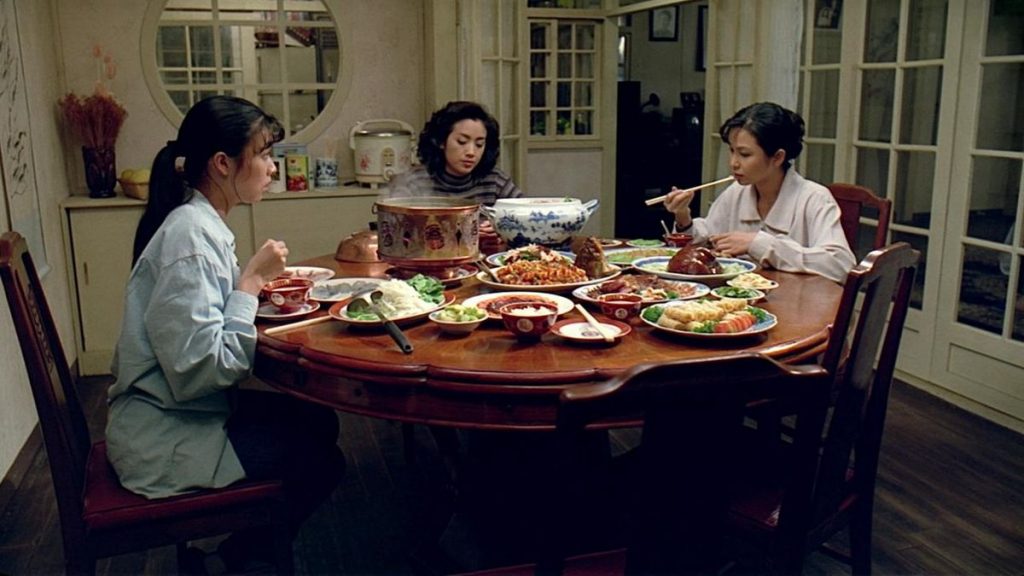
XD: I managed to smuggle in one more film (Eat Drink Man Woman) in my afterthoughts, and you opened the door for another five films and even more directors! But why not? The more the merrier. And let me quickly respond to your comment on The Threepenny Opera. First, it’s a satire. We talked about how satire may come off as more serious than other comic forms. Second, it’s experimental and the experiments are historical. This becomes clear when we look at it together with other film comedies around the same time. Last, it’s based on a Brecht play and some of the Brechtian methods are actually methods of comedy. We can also arrive here by tracing Pabst’s adaptation of Brecht and Brecht’s from John Guy’s satirical ballad opera, The Beggar’s Opera.
Coming up with the lists does make us reflect on our own approaches to film comedy in this dialogue. It’s true that we have been talking about a broad spectrum of films, from more clearly defined genre pictures to some of the most counterintuitive examples (Tsai, Tarr, Pabst, et al.). But we are not suggesting that it’s all about interpretation, that we can take a film to be anything we want it to be. We are talking about these films as comedies from the perspective of cinematic humor, thereby calling attention to the various ways it is constructed by different directors and the various forms it takes, especially in different historical periods. What we have are “comedy mutations” without one single center or origin, but always with the perceived cinematic humor that turns on what’s there and then, in reality and in film history.
So shall we end our conversation here and watch more comedies? I haven’t seen The Wind Will Carry Us on your list; I’m quite curious.
JR: I’m curious about Li Shuangshuang myself. And let this be our invitation to our readers as well.
